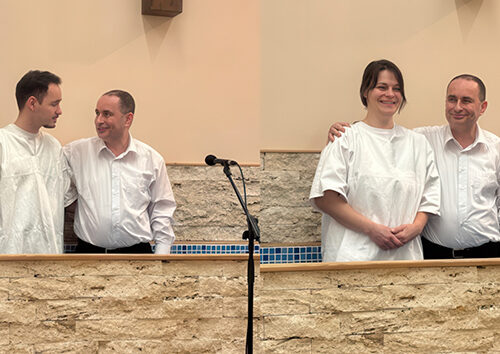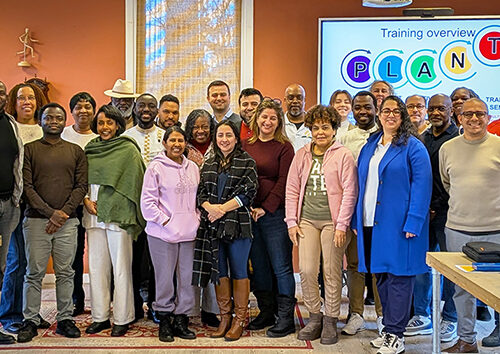25 March 2020 | Athens, Greece [Yannis Vrakas/ tedNEWS]
Yannis Vrakas, Associate Secretary-Treasurer for the Greek Mission, reflects on the ethical implications of the current coronavirus lockdown affecting his country and large parts of Europe.
How much does a life cost? How much does keeping someone alive cost?
I generally avoid talking ‘politics’ as many times the discussions end in disagreement, but the way governments and societies around the world decide to deal with the coronavirus outbreak reflects some of the core beliefs that each nation holds dear. Let me focus just on my country, Greece, and how the measures taken by the Greek government in order to contain the spread of the virus can serve as a reminder of some of the core values we hold as believers.
When coronavirus reached Greece, the government immediately started to impose measures to reduce its spread. The rationale behind the decision was to gain time and spread the serious cases across a larger timeline so that the financially crisis-stricken health system could treat cases in the best possible way. It was all about the management of resources in order to be able to prevent as many fatalities as possible.
As the days went by, the measures became stricter: all shops closed except the few that provide essential provisions. Supermarket entry is limited to ensure safe social distancing. Gatherings of more than ten people, be it public or private, were strictly forbidden, and now all hotels are closed as the government considers a ban on people leaving their homes altogether.
Driving through empty streets, seeing people wear masks and queueing outside the supermarket feels surreal. That feeling is amplified as I see ambulance personnel dressed in white costumes getting ready to transport a coronavirus infected patient. It feels as if I am part of a Hollywood movie. Scary!
It is worse for business. My neighbour runs a family bakery and cafe. He employs thirteen staff and pays a high rent. How can he survive financially when people don’t shop and the government has closed the café? It took just a few moments of small talk to see how hopeless he feels.
Measures taken to contain coronavirus are a huge issue for the Greek economy in general and to individual businesses. And this is an economy that is already very fragile.
THE ETHICAL QUESTION
I believe the way we view this whole struggle is connected with a deeply ethical question: How much do we value life?
More precisely, as coronavirus is predominantly affecting the elderly and people with serious preconditions, how much do we value the life of the weakest and most vulnerable among us?
Is it worth it to lose my business in order to protect someone I will never meet? Is it worth it to have another recession in order to save the lives of those who are supported by an already weak economy?
As societies turn away from God, the dogma of ‘survival of the fittest’ or the richest is too often prevalent. However, God has given us a different set of values even as He Himself took on a weak and vulnerable human form in order to save the weakest in the whole universe.
“In your relationships with one another, have the same mindset as Christ Jesus: Who, being in very nature God, did not consider equality with God something to be used to his own advantage; rather, he made himself nothing by taking the very nature of a servant, being made in human likeness. And being found in appearance as a man, he humbled himself by becoming obedient to death— even death on a cross!” [Philippians 2:5-8 NIV]
I am not sure how religious Greek politicians are. You may be sure though that I am glad that the centuries-old Christian tradition still shapes our social outlook and can drive ethically based political decisions.
I pray that my fellow countrymen will seek to have a personal relationship with the God who seeks to save the weak. I also pray that these difficult choices will be good for our economy.
For myself, I now follow and understand more those loving words of the apostle Paul:
“Do nothing out of selfish ambition or vain conceit. Rather, in humility value others above yourselves, not looking to your own interests but each of you to the interests of the others.” [Philippians 2:3-4 NIV]
tedNEWS Staff: Victor Hulbert, editor; Deana Stojković, associate editor
119 St Peter’s Street, St Albans, Herts, AL1 3EY, England
E-mail: [email protected]
Website: www.ted.adventist.org
tedNEWS is an information bulletin issued by the communication department of the Seventh-day Adventist Church in the Trans-European Division. Readers are free to republish or share this article with appropriate credit including an active hyperlink to the original article.



